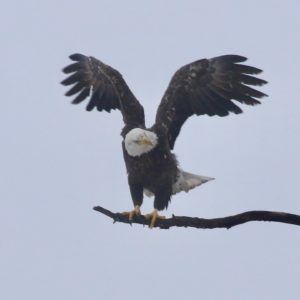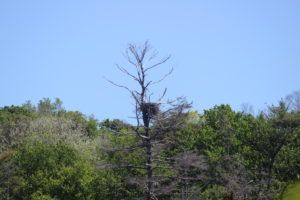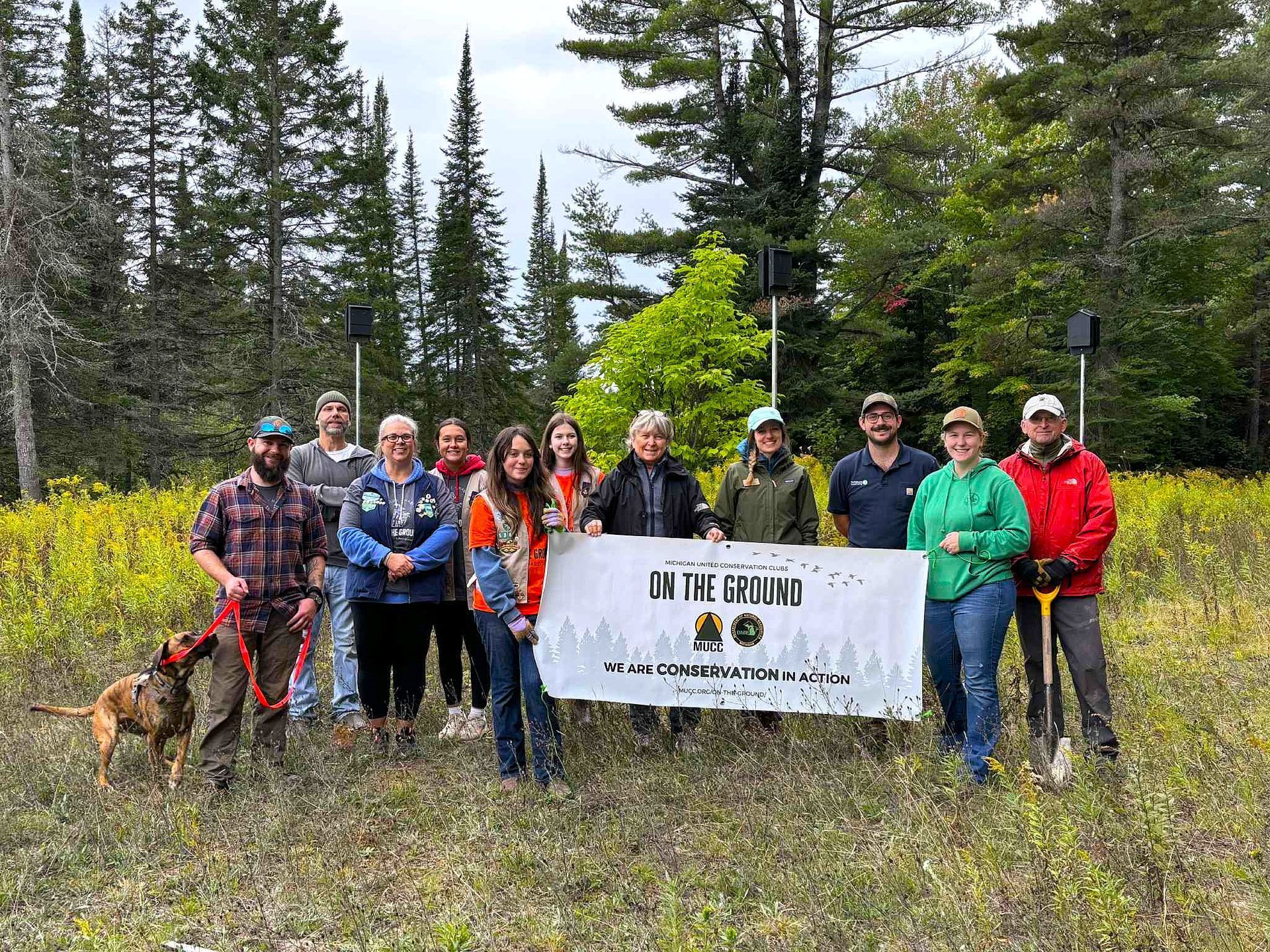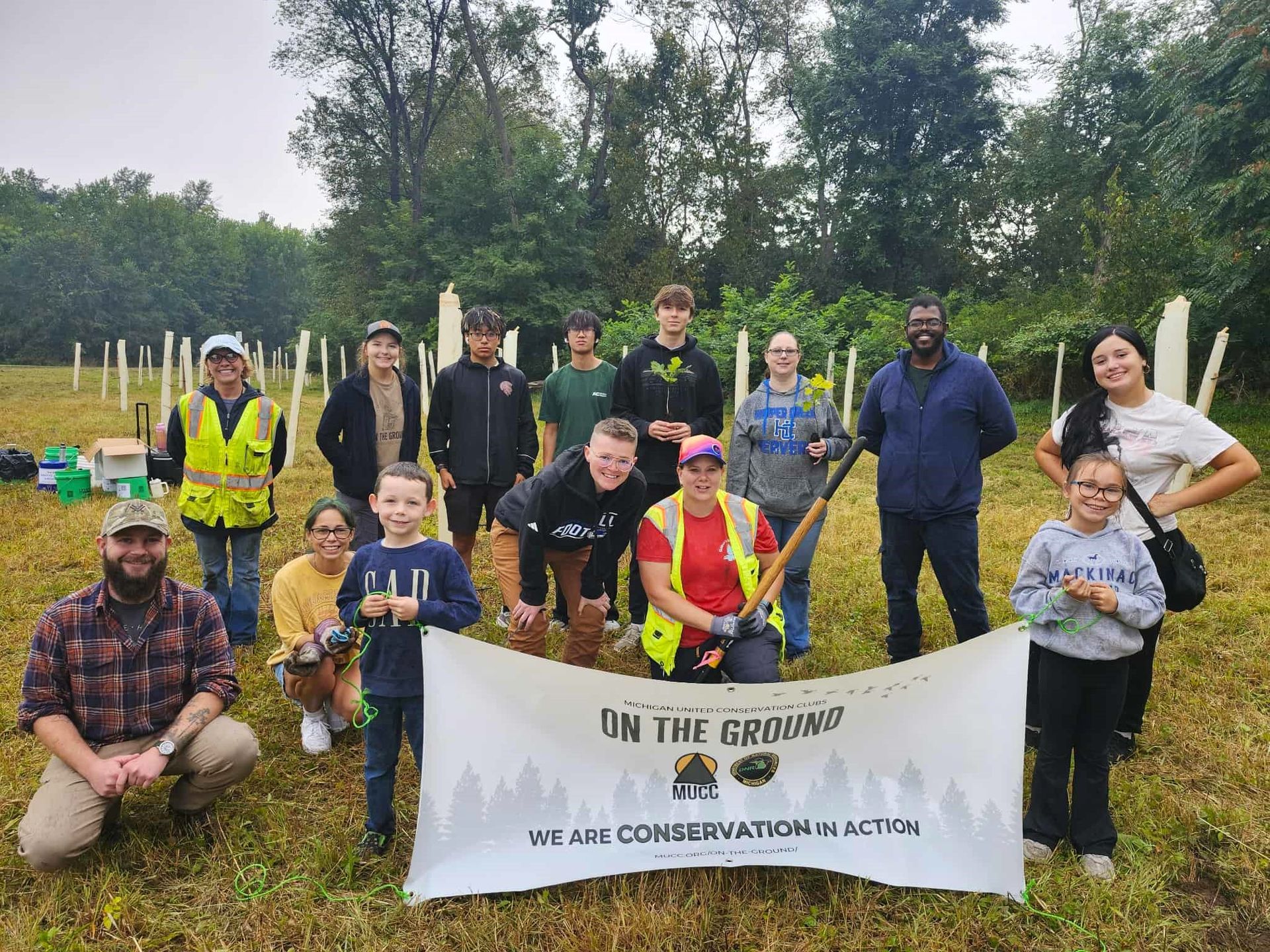The Michigan Bald Eagle Observation Survey
Many people who spend time in Michigan’s outdoors come across a bald eagle nest or see an eagle fly over. Some might even go back to that location regularly to check on the success of the eagle nest. Bald eagles are an important bird species and are a symbol of our nation. The recovery of the bald eagle is one of the greatest conservation success stories. Researchers need help from MUCC members to gain insight on bald eagle populations in Michigan from 2021-2023. Read on to learn more about why MUCC members are being asked to help and how. Click HERE for the survey link.
Background
Dr. Bill Bowerman, a professor from the University of Maryland, has been studying the bald eagle population in Michigan for 40 years. During this time period, Michigan’s eagle population has grown

Adult bald eagle sitting on branch in Roscommon, MI. (Photo by Sarah Scheitz)
from 140 breeding pairs to a high of 1,000 pairs in 2022. Aerial surveys were conducted from 1961 to 2018 across the entire state. These surveys contributed to one of the largest and most important population studies in the world. Due to a stable population, the intensity of aerial surveys decreased. Only about 1/3 of the state is now flown (lower half of the Lower Peninsula).
Unfortunately, right after the breeding season began in 2022, eagles experienced a new threat – highly pathogenic avian influenza (bird flu). This disease increased adult mortality, reduced nesting success, and has left many bald eagle nests in Michigan vacant. Researchers know that it significantly impacted population levels of nesting eagles, but they do not know to what extent since aerial surveys are not conducted statewide.
How to Get Involved

Empty bald eagle nest at Sleeping Bear Dunes National Shoreline (Photo by Sarah Scheitz)
This is where MUCC members come in. Many of you spend time in the woods, on lakes, and along Michigan’s rivers and likely know where eagle nests are in your favorite places. Researchers from the University of Maryland have asked for your help to fill the data gaps in areas they do not survey by aircraft to help determine the impact of this disease. Any eagle nest observations made between January 1 and July 4 for the years 2021, 2022, 2023, and 2024 can be entered. Your input is invaluable, and your responses will make an important contribution to understanding and protecting Michigan’s bald eagle population. This is one small step that you as an MUCC member can take to accomplish our mission to conserve and protect Michigan’s natural resources. To fill out the survey, click HERE or copy and past the link below:
https://umdsurvey.umd.edu/jfe/form/SV_8poKUez0tTfv1JA
The Michigan Bald Eagle Observation survey is being conducted by Dr. Jen Shaffer at the University of Maryland, College Park. If you have any questions about the survey, please contact Dr. Shaffer by email at irb@umd.edu or phone at 301-405-0678.
The post The Michigan Bald Eagle Observation Survey appeared first on Michigan United Conservation Clubs.



